Earth

Educators and Parents, Sign Up for The Cheat Sheet
Weekly updates to help you use Science News Explores in the learning environment
Thank you for signing up!
There was a problem signing you up.
-
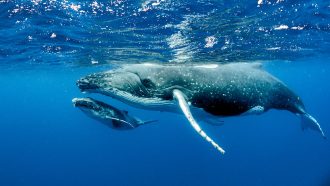 Animals
AnimalsLet’s learn about whales and dolphins
Whales, dolphins and porpoises are all cetaceans — mammals that live in water and have a streamlined body similar to a fish.
-
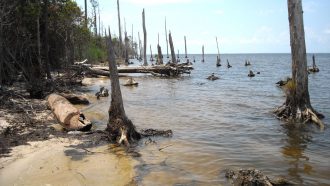 Earth
Earth‘Tree farts’ make up about a fifth of greenhouse gases from ghost forests
Heat-trapping gases from dead trees play an important role in the environmental impact of “ghost” forests.
-
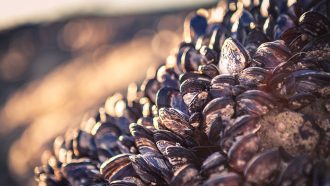 Animals
AnimalsCommon parasite may help mussels survive heat waves
By whitening shells, the organism helps the shellfish stay cool on sunny days, a new study suggests.
By Sid Perkins -
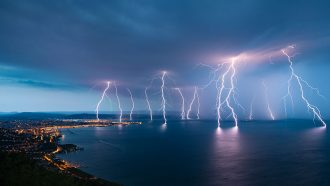 Earth
EarthLet’s learn about lightning
Around 100 times a second, every hour of every day, lightning strikes somewhere on Earth. It’s beautiful — and deadly.
-
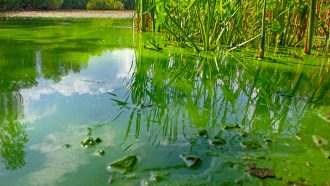 Environment
EnvironmentPond scum can release a paralyzing pollutant into the air
New study finds blooms of blue-green algae can seed the air with a poisonous pollutant.
-
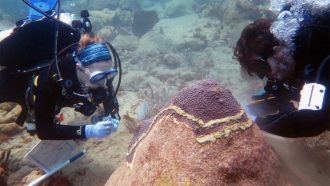 Animals
AnimalsA common antibiotic might save some sick corals
The antibiotic amoxicillin stopped tissue death in corals for at least 11 months after treatment.
-
 Health & Medicine
Health & MedicineWarning: Wildfires might make you itch
Western wildfires are on the rise due to climate change and land use. Now a study adds eczema to the list of health risks that smoke might trigger.
-
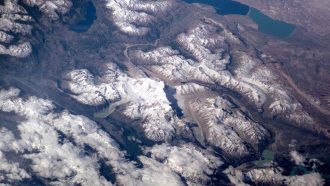 Climate
ClimateClimate may have sent drift of the North Pole toward Greenland
This mid-1990s shift in the pole’s movement was driven by glacial melt. And that was triggered in part by climate change, a new study reports.
By Sid Perkins -
 Earth
EarthOnly 3 percent of Earth’s land is unchanged by people
A sweeping survey of land-based ecosystems finds that very few still support all the animals they used to. Reintroducing lost species could help.
-
 Agriculture
AgricultureNew technologies might help keep drought-prone farms green
After learning how much damage drought can do to crops, two teens designed ways to detect a thirsty plant and make sure it gets enough water.
-
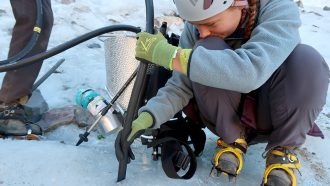 Environment
EnvironmentLocal glacier could be gone in a decade, young scientist finds
A teen calculated the volume of a glacier by drilling into it with jets of steam — then used that to estimate how long before all its ice will be gone.
-
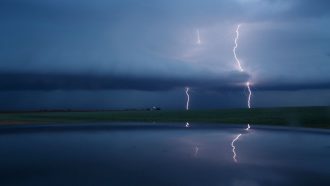 Earth
EarthHere’s how lightning may help clean the air
Airplane observations show that storm clouds can generate huge quantities of air-cleansing chemicals known as oxidants.